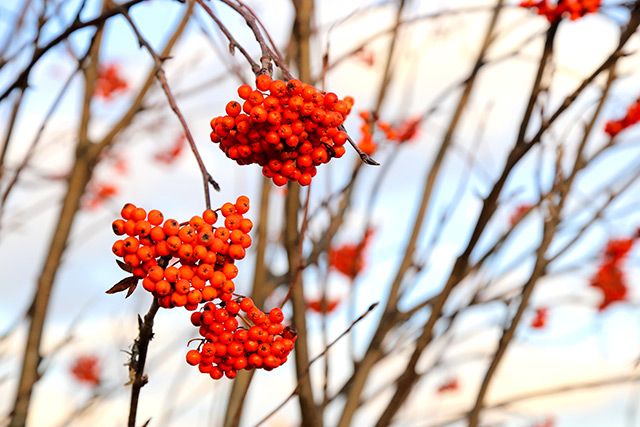Using rowan fruit powder to make gluten free bread increases nutritional value and antimicrobial activity
09/01/2018 / By Frances Bloomfield

Rowans aren’t just ornamental plants; they can also be used to improve gluten-free breads. According to a team of researchers from various Russian institutions, adding rowan to bread significantly enhances its nutritional profile, and makes it less prone to spoilage.
For the purposes of the study,which has been published in Agronomy Research, the investigators used two different types of rowan powder. One was ordinary rowan, which is distinguished by its astringency and bitterness. The other was rowan varietal phoenicea, a new breed lacking the bitterness and astringency but is noted for its impressive nutrient content. These, as well as kinds of pectin and dietary fiber, were mixed into laboratory-baked bread.
The researchers then utilized the following criteria to examine the bread. First were the organoleptic properties, or the qualities of the bread that stimulated the sense organs. Appearance, crumb conditions, odor, and flavor all fall under this criteria. Physical and physico-chemical properties were taken into consideration as well, which entailed measuring acidity, moisture, and porosity. Additionally, the researchers tested the bread for spore-forming bacteria. The bacteria was then examined for its ability to cause ropy spoilage, a bacterial spoilage that cause bread to develop an unpleasant odor and discolored or sticky breadcrumbs.
By adding rowan powder, it caused the bread to become highly acidic with an elevated volatile acid content. Doing so improved the bread’s chemical composition, which in turn “significantly affect[ed] the increase in the nutritional value and the improvement of consumer qualities, the formation of a more pronounced gluten-free bread odor and flavor,” wrote the researchers. They described the bread as having a better flavor and odor than most gluten-free bread, stating that these were “more intense, pleasant, with acidity and fruity notes due to rowan powder.”
When combined with citrus fiber, both rowan powders could increase the nutritional value of bread by a large margin. The dietary fiber and iron content were high, a benefit due to iron deficiency being so common in gluten-free diets. Moreover, rowan powder imbued the bread with greater antioxidant activity.
Following these analyses, the researchers compared the antimicrobial activity of rowan powder against other common gluten-free ingredients. Included in the test were corn flour, corn starch, rice flour, soy protein, and starch extrusion. Bread slices containing these ingredients were coated with broth-meat peptone that had spore-forming bacteria and then cultured until there were signs of contamination. These appeared on the non-rowan powder breads within 18 to 24 hours. The breads that had four percent rowan powder were infected 12 hours later, and those with eight percent rowan powder a had ropy disease about six hours later than the four percent bread. A piece of rowan powder bread that hadn’t been infected with bacteria only started showing signs of ropy disease 48 hours after the experiment began.
As such, the researchers deemed rowan powder to be suitable as a gluten-free bread thickener, structure-forming agent, and enriching additive. “Thus, it was proved that the use of rowan fruit powder and citrus dietary fiber would expand the assortment of gluten free bread, improve its physico-chemical and organoleptic characteristics and increase the nutritional value and microbiological safety,” they stated. (Related: Gluten-free going mainstream as nearly one-third of Americans seek to avoid gluten.)
The problem with gluten-free food
People who choose to subsist primarily on gluten-free foods will encounter a few side effects. The biggest of these is the one addressed by rowan powder, which is the absence of certain essential nutrients. According to VeryWellFit.com, iron, fiber and B vitamins are usually obtained from the foods that aren’t allowed in gluten-free diets. Whole grain bread products are the usual source for fiber, while enriched wheat flour products supply iron and B vitamins. Getting around these deficiencies most often calls for increasing the intake of fresh vegetables and fruits known to be high in these nutrients. Though with the discovery that rowan can answer that particular problem, gluten-free breads may be a feasible way of avoiding it in the first place.
Go to FoodScience.news to read up on more studies or articles on all things relating to food.
Sources include:
Submit a correction >>
Tagged Under:
This article may contain statements that reflect the opinion of the author
RECENT NEWS & ARTICLES
COPYRIGHT © 2017 SUPER FOODS NEWS





















